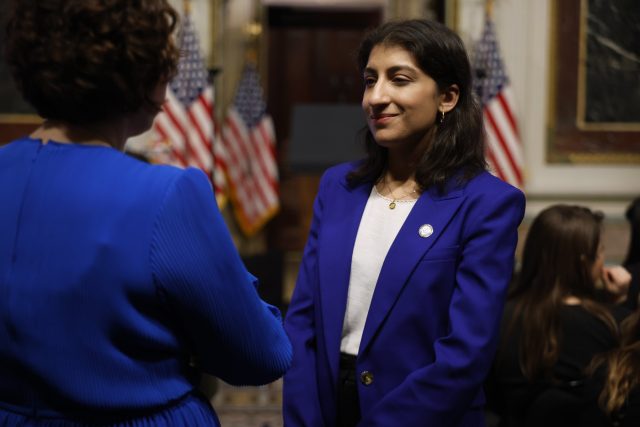FTC bans noncompete clauses, declares vast majority unenforceable

🌈 Abstract
The article discusses the Federal Trade Commission's (FTC) final rule banning noncompete clauses, which will render the vast majority of current noncompete clauses unenforceable. The rule aims to address the widespread and often exploitative practice of noncompetes, which the FTC says keep wages low, suppress new ideas, and limit worker mobility.
🙋 Q&A
[01] FTC's Final Rule on Noncompete Clauses
1. What are the key points of the FTC's final rule on noncompete clauses?
- The FTC has determined that noncompete clauses are an unfair method of competition and a violation of Section 5 of the FTC Act.
- The final rule will render the vast majority of current noncompete clauses unenforceable, with the exception of those for senior executives earning more than $151,164 per year.
- Existing noncompetes for senior executives will remain in force, but employers will be banned from entering into or attempting to enforce any new noncompetes, even for senior executives.
- Employers will be required to provide notice to workers other than senior executives who are bound by an existing noncompete that they will not be enforcing any noncompetes against them.
2. What is the FTC's rationale for banning noncompete clauses?
- The FTC argues that noncompetes keep wages low, suppress new ideas, and limit worker mobility, thereby reducing competition and dynamism in the economy.
- The FTC cites evidence that noncompetes tend to negatively affect competitive conditions in product and service markets, inhibiting new business formation and innovation, and leading to increased market concentration and higher prices for consumers.
- The FTC believes that employers can protect trade secrets through other means, such as trade secret laws and nondisclosure agreements, without resorting to noncompete clauses.
3. What is the legal basis for the FTC's authority to implement this rule?
- The FTC argues that it can impose the rule using authority under Sections 5 and 6(g) of the FTC Act, which empower the Commission to make rules and regulations for the purpose of preventing unfair methods of competition.
[02] Reactions and Responses to the FTC's Rule
1. What is the US Chamber of Commerce's response to the FTC's rule?
- The US Chamber of Commerce has stated that it will sue the FTC in an effort to block the rule, claiming the ban is "a blatant power grab that will undermine American businesses' ability to remain competitive."
2. What is FTC Chair Lina Khan's perspective on the benefits of banning noncompete clauses?
- FTC Chair Lina Khan has stated that "Noncompete clauses keep wages low, suppress new ideas, and rob the American economy of dynamism, including from the more than 8,500 new startups that would be created a year once noncompetes are banned."
3. How does the FTC respond to concerns about the impact on businesses?
- The FTC argues that instead of using noncompetes to lock in workers, employers can compete on the merits for the worker's labor services by improving wages and working conditions.